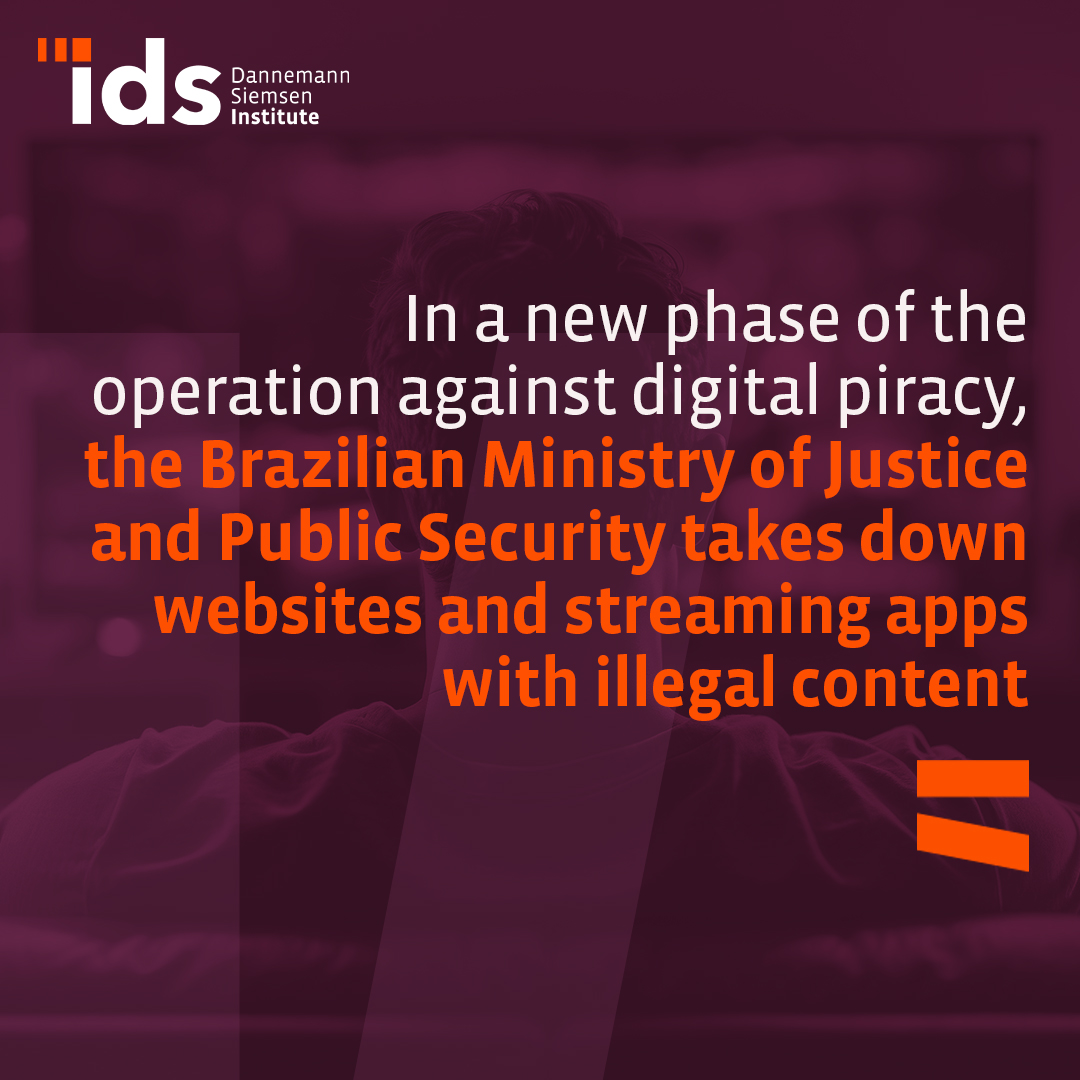26 de setembro de 2024
Share
In a new phase of the operation against digital piracy, the Brazilian Ministry of Justice and Public Security takes down websites and streaming apps with illegal content
On September 19, the Brazilian Ministry of Justice and Public Security (MJSP), in coordination with the National Secretariat of Public Security (Senasp), launched the seventh phase of Operation 404, a coordinated action aimed at combating crimes against intellectual property (IP) committed on the Internet. The operation is part of an international initiative involving the participation of agencies from countries such as Argentina, the United States, Paraguay, Peru and the United Kingdom and aims to make inaccessible services and platforms that violate copyright by making digital content available in an unauthorized way.
The operation’s name alludes to the 404-response code in the HTTP protocol (the communication protocol that allows data to be transferred on the internet), which indicates that a virtual page is unavailable or cannot be found. Since its first phase in 2019, Operation 404 has expanded increasingly in terms of scope and coverage. In its initial phase, 210 websites and 100 streaming apps were blocked. In subsequent phases, there has been a significant increase in the number of platforms removed and in the volume of search and seizure warrants. For example, the third phase of the operation, in 2021, resulted in the blocking of 334 websites and 94 streaming apps, while the fourth phase, in 2022, reached 461 music apps and deactivated channels in the metaverse that were broadcasting illegal content.
In this sense, the actions are supported by article 184, paragraph 3, of the Penal Code, which provides for prison sentences of two to four years, plus a fine, for crimes against Copyrights, especially “if the violation consists of offering the public, through cable, optical fiber, satellite, waves or any other system that allows the user to select the work or production to receive it at a time and place previously determined by the person making the demand.” In addition, according to the MJSP, individuals involved in the distribution of illegal content can also be charged with other crimes, such as criminal association (art. 288 of the Penal Code) and money laundering (Law 9.613/1998), which can result in more severe criminal penalties. Here, the MJSP also cites Operation Redirect, which highlighted the security risks to users who use piracy services from illegal sites which, in addition to making content available without permission, install malware and viruses on consumers’ devices, exposing them to threats such as data theft through phishing and other types of cyber-attacks.
It is therefore important to note that the actions of Operation 404 are backed by well-founded court decisions that authorize the search and seizure of materials used to commit these crimes, as well as allowing the blocking and removal of pirate websites and applications. In the last phase, 675 websites and 14 streaming applications that made audiovisual and musical content available illegally were blocked. In addition, profiles and pages on social networks were removed, content was de-indexed from search engines, 30 search and seizure warrants were served, in which various materials related to the crimes were seized, and 8 people were arrested, 5 in Brazil and 3 in Argentina.
The actions took place in nine Brazilian states, such as São Paulo, Minas Gerais and Rio de Janeiro, in an operation coordinated by the Cyber Operations Laboratory (Ciberlab) of the Operations and Intelligence Directorate (Diopi) of the National Public Security Secretariat (Senasp), with the help of the Civil Police of the nine states.
More information on Operation 404 can be accessed via the link: Operação 404 -MJSP
Note: For quick release, this English version is provided by automated translation without human review.
